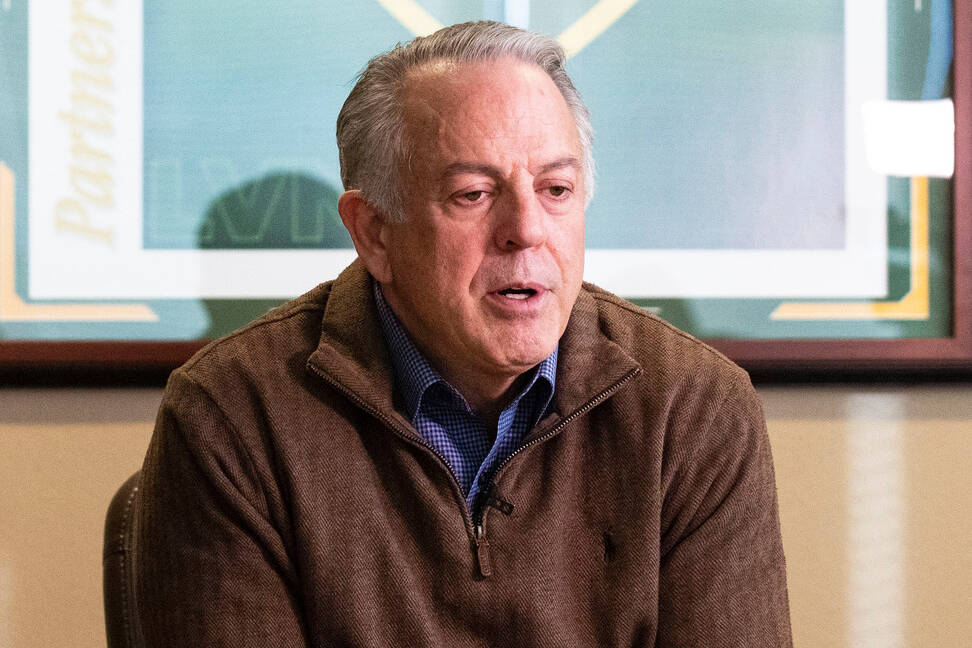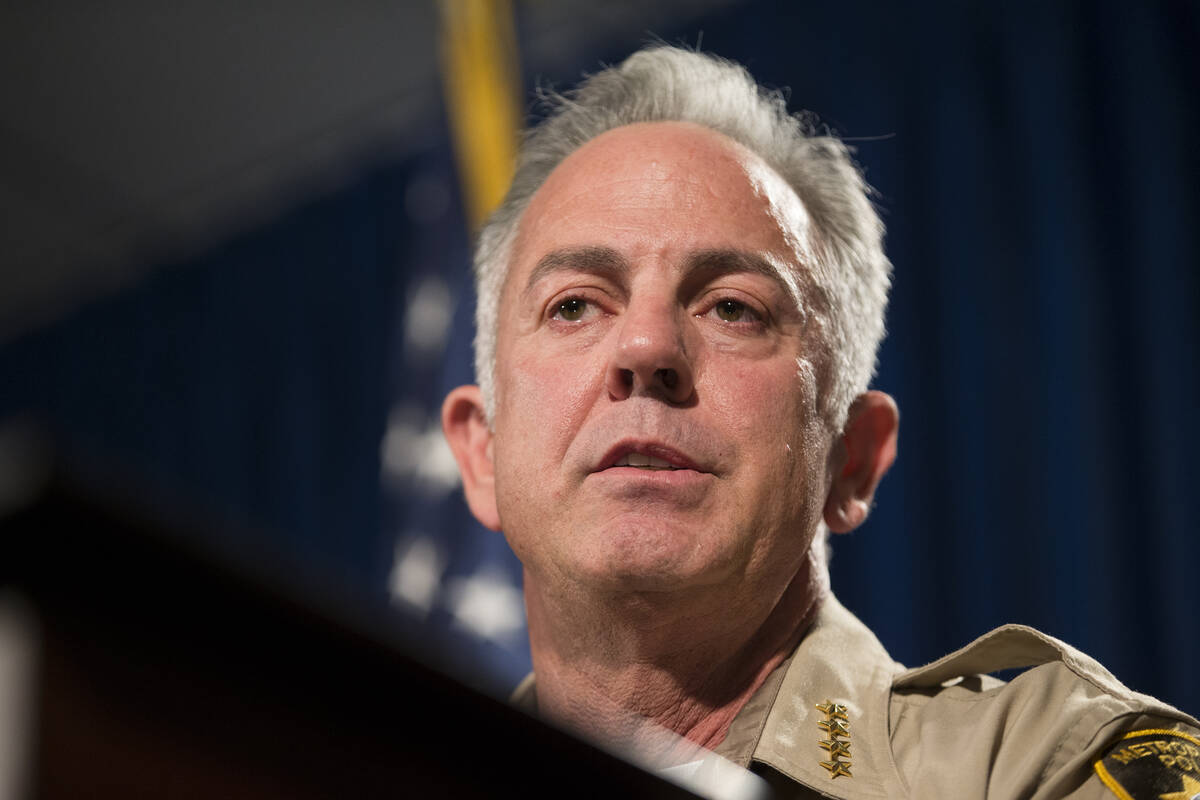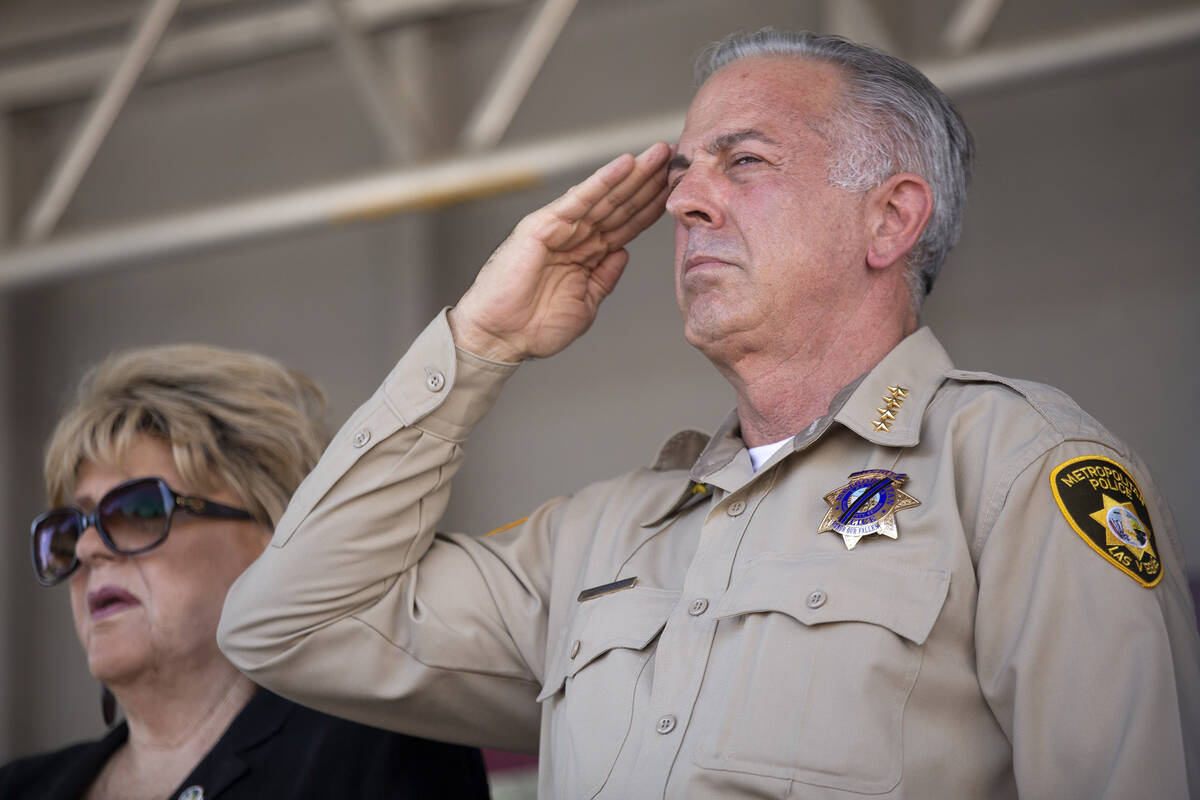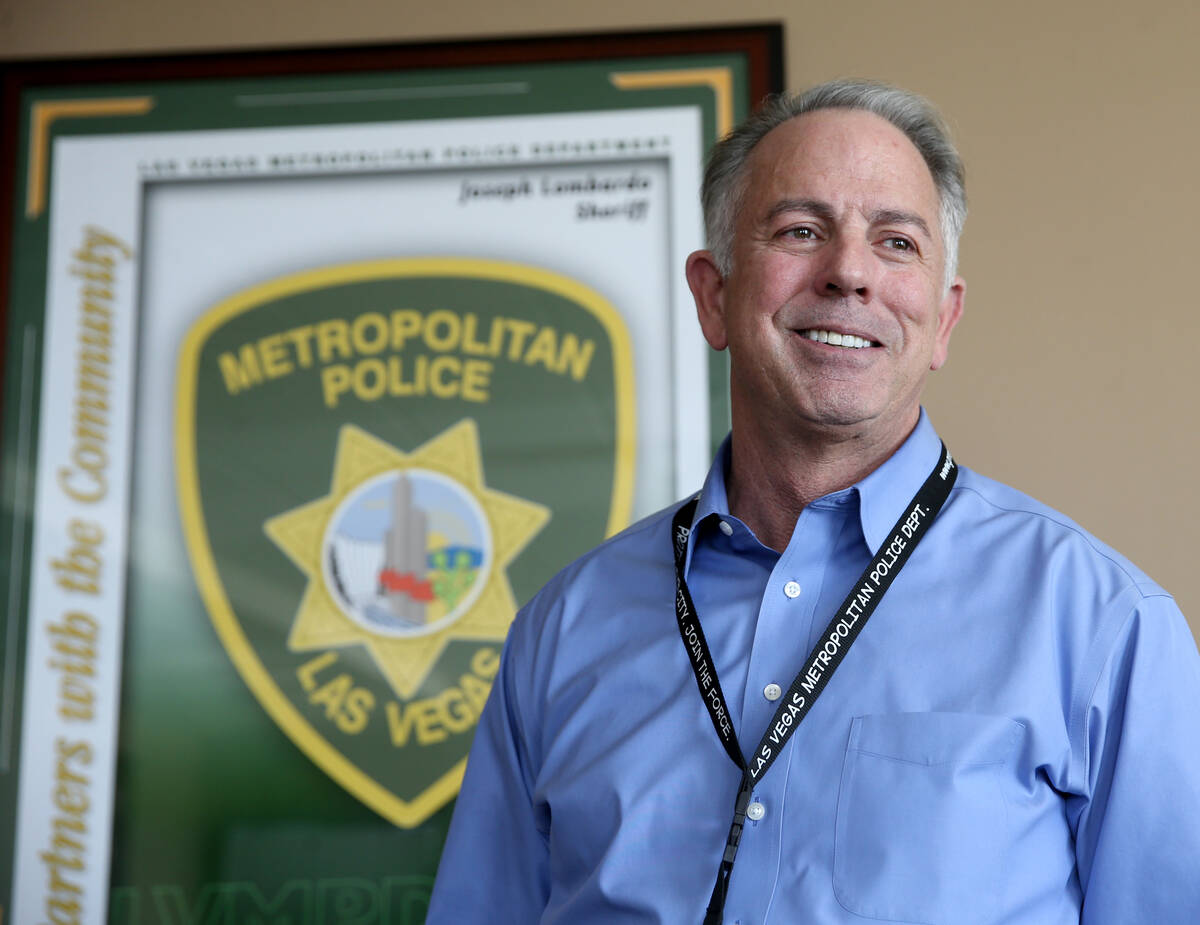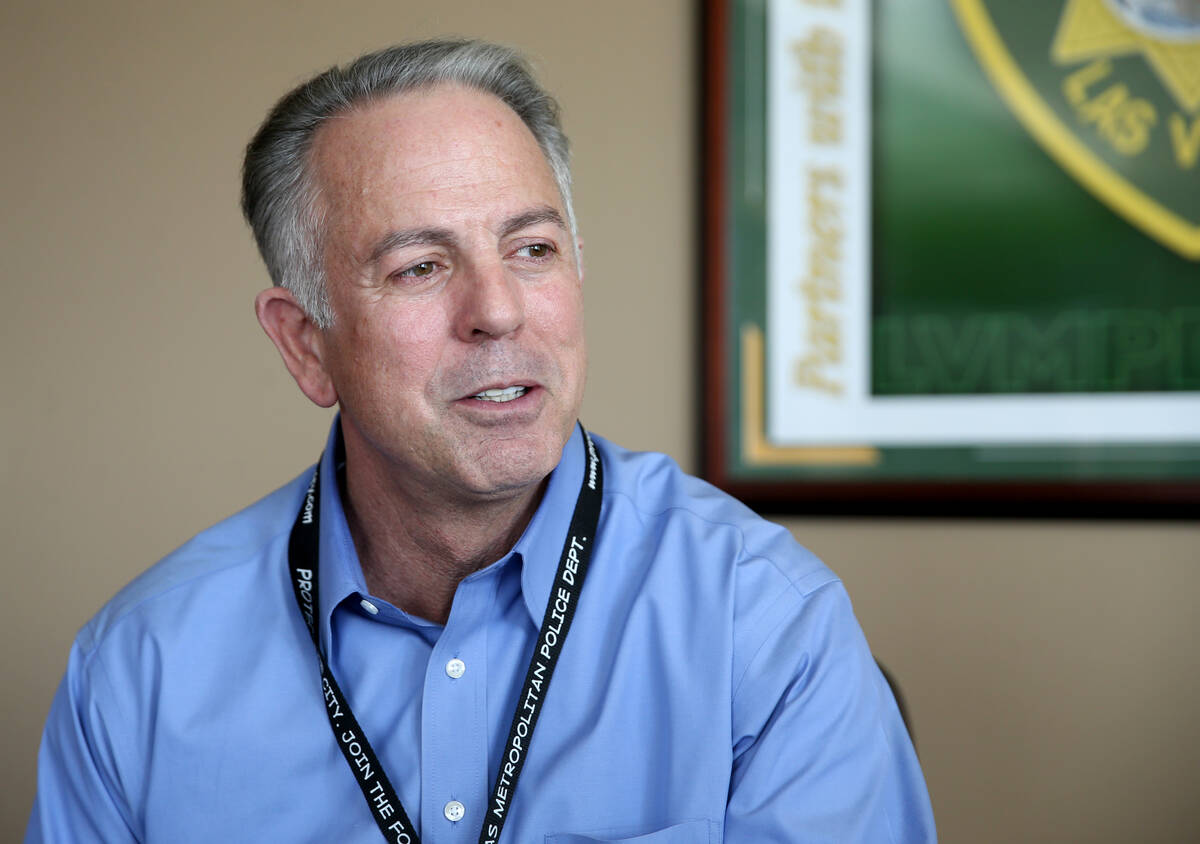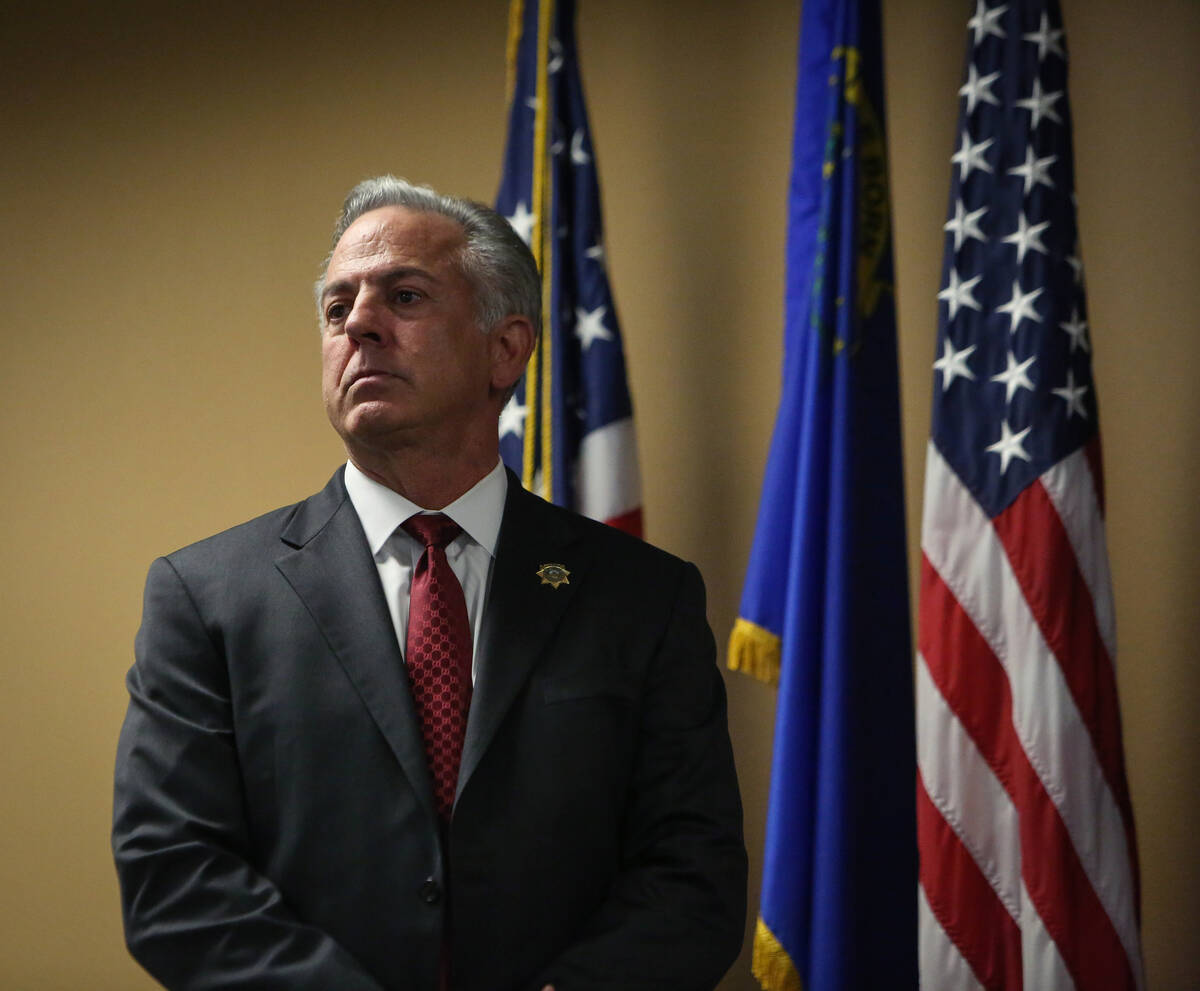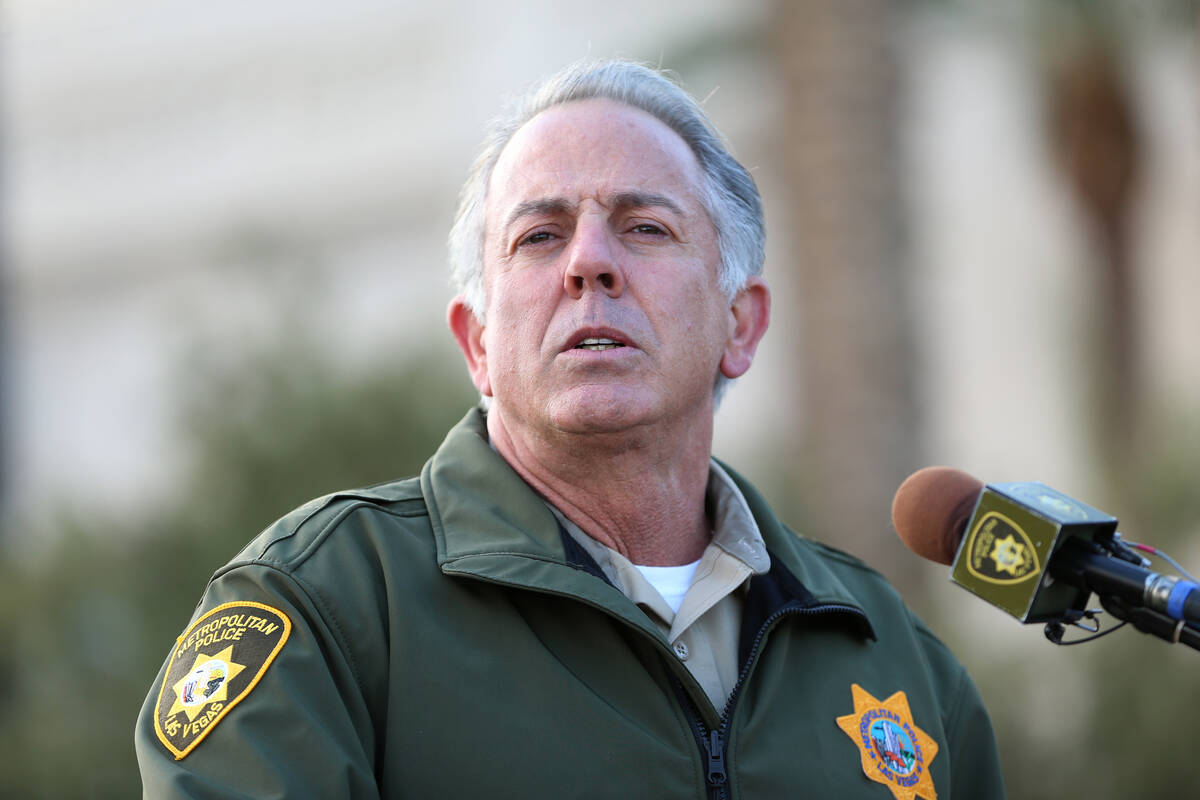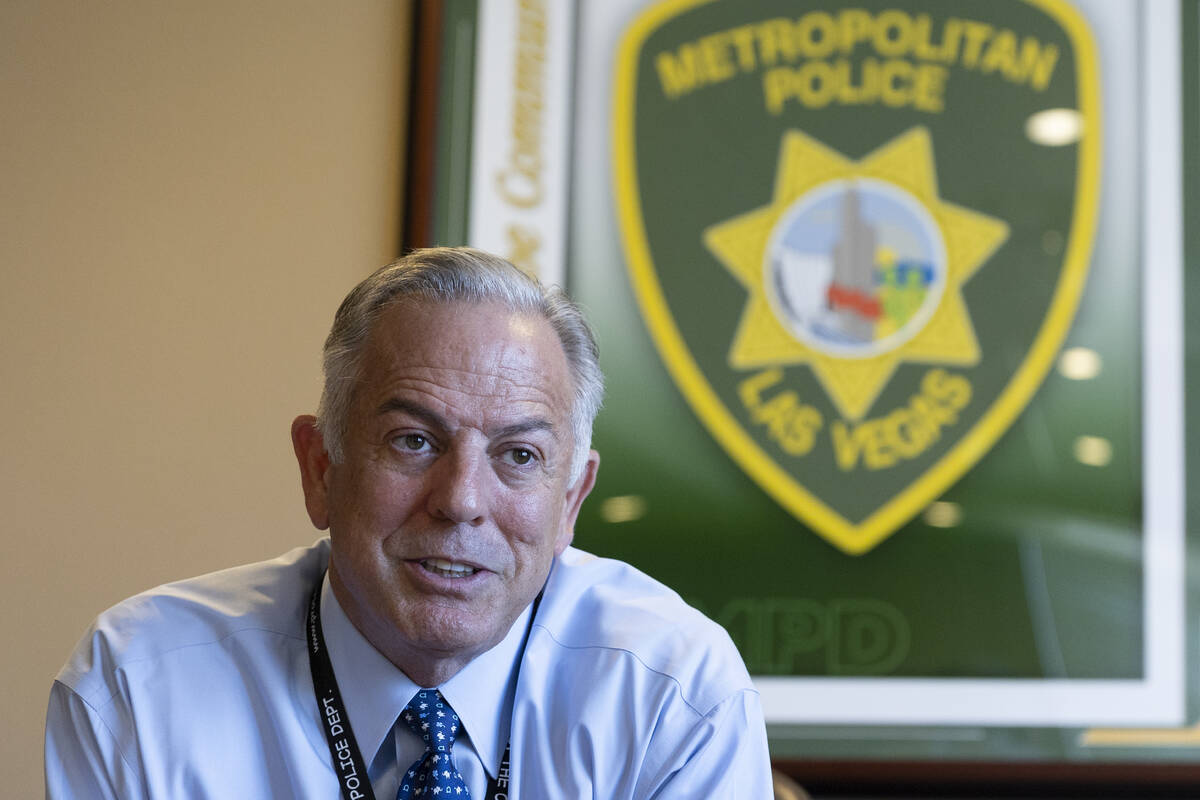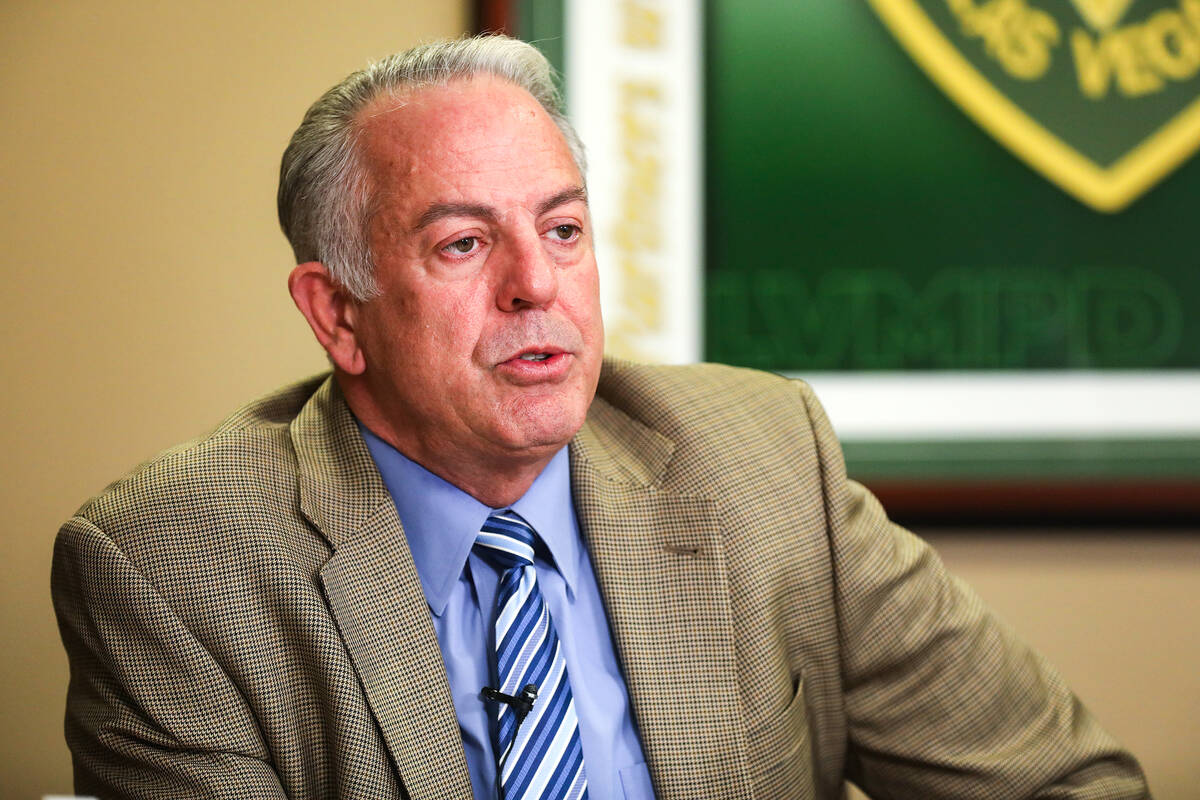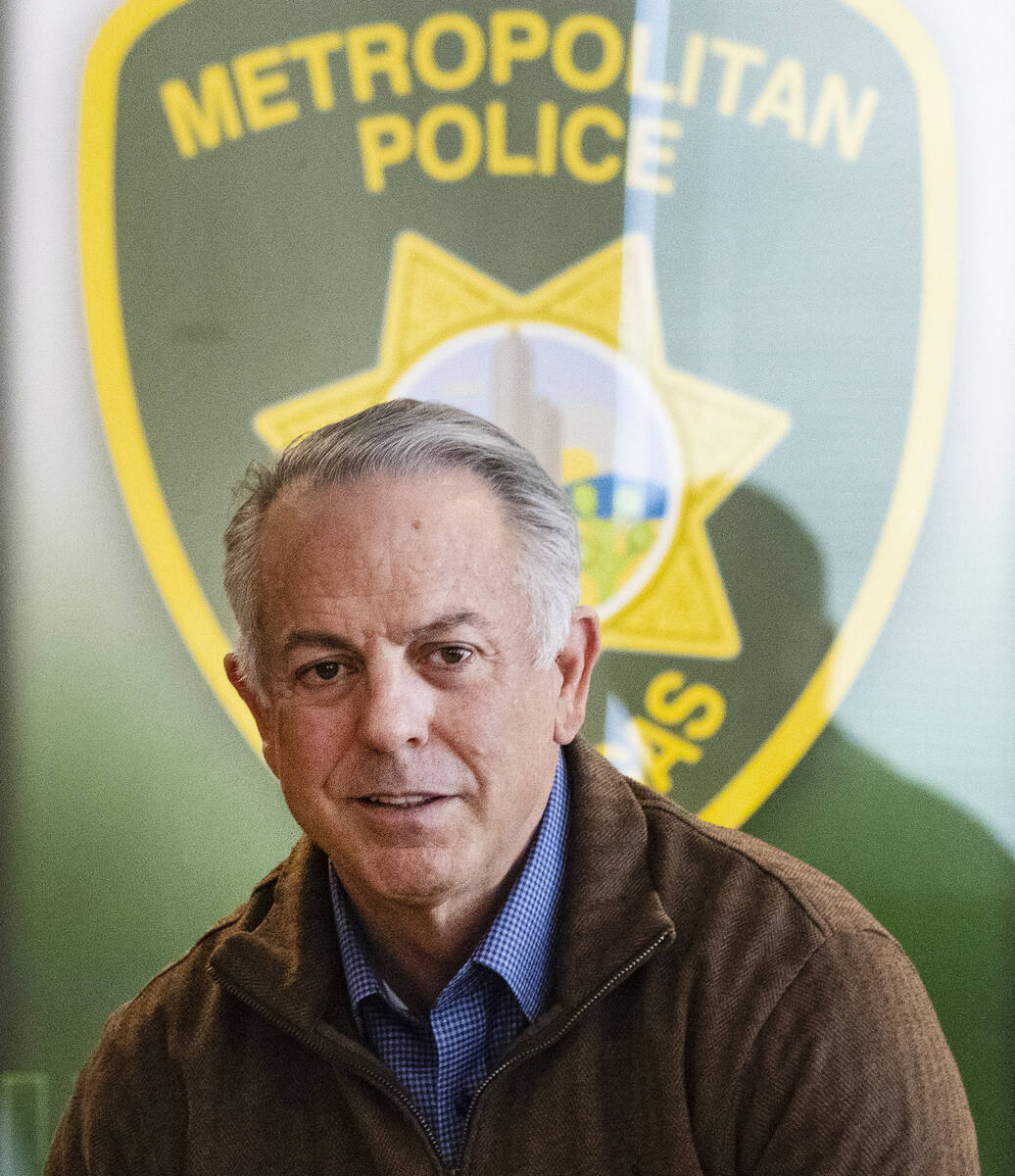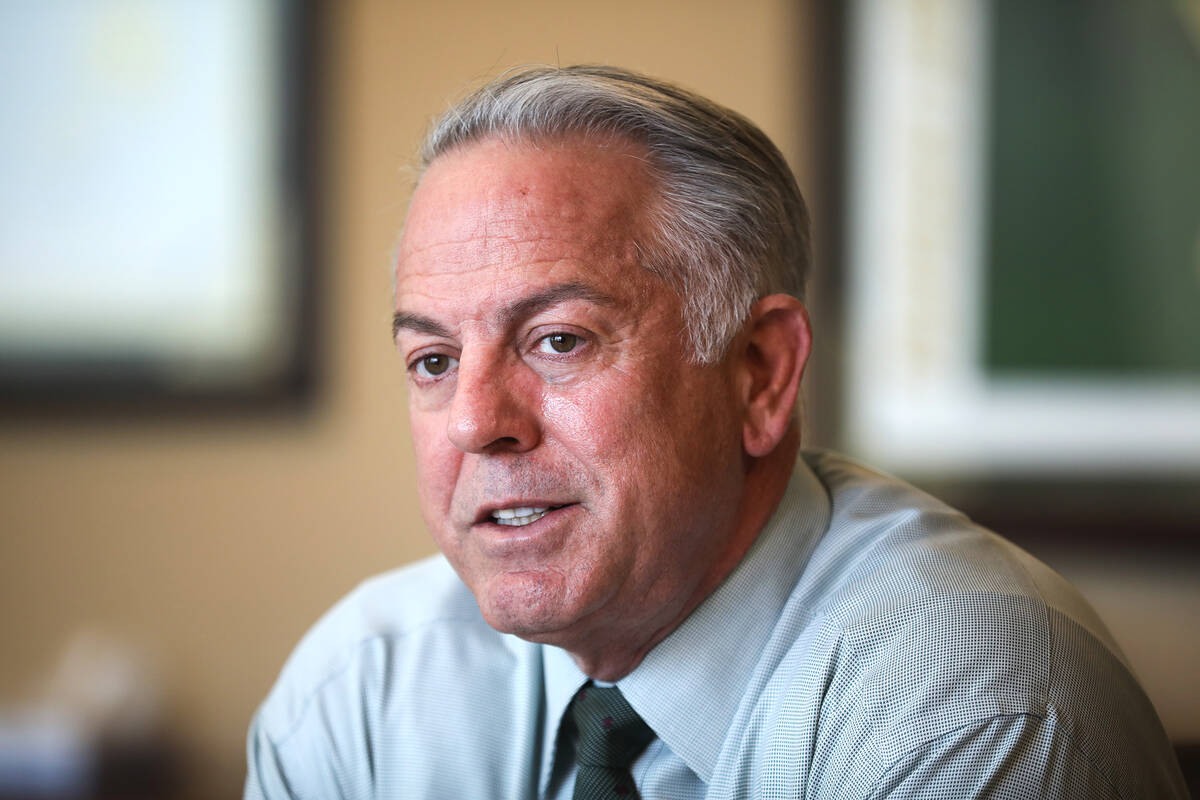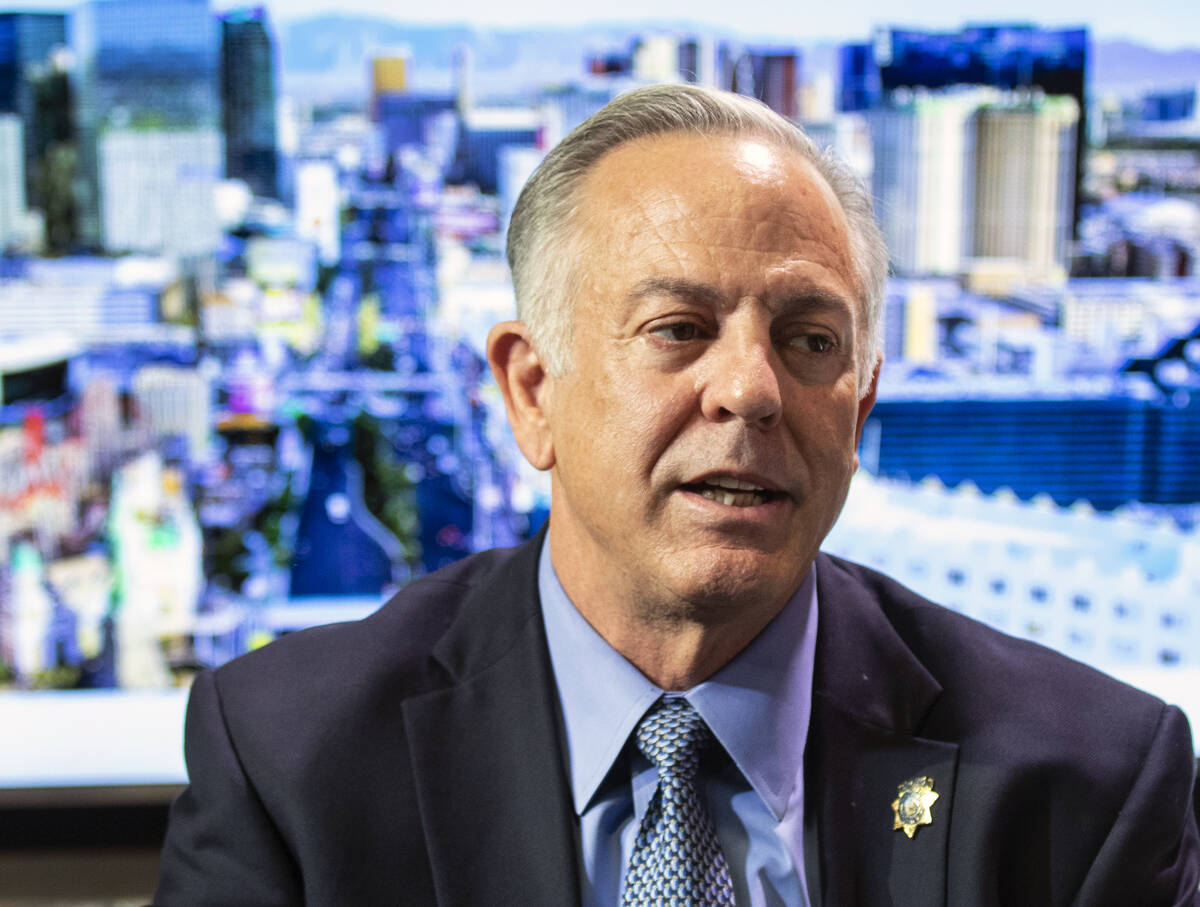Joe Lombardo, incoming governor, reflects on police career
Outgoing Clark County Sheriff Joe Lombardo takes pride in a “pretty good career,” pointing to the Metropolitan Police Department’s newest technology and success at keeping crime at bay.
But the incoming Nevada governor acknowledged some faults in his tenure. He hoped incoming Sheriff Kevin McMahill could fulfill promises Lombardo made to help the homeless and those with mental illness. He regretted decentralizing investigative sections of the department too quickly and not spending more time with patrol officers.
“I’ve let a little bit of my own work construction and the work of the day prevent me from getting out and seeing the troops more often,” he said in a December interview with the Las Vegas Review-Journal. “I got a little too tied to the desk versus the field.”
Lombardo was elected sheriff in 2014 after 25 years with the department. He officially took office in January 2015 and will leave his position on Monday, when he is to be sworn is as governor.
He declined multiple requests to discuss his plans as governor.
Combating violent crime
Within six months of taking office as sheriff, Lombardo decentralized several investigative units at Metro, including units that investigate gangs, robberies and drugs. The annual report for 2015 boasted that 124 detectives were moved into eight area commands.
The next year, Metro saw the highest number of homicides in at least 20 years of record keeping, which Lombardo attributed to a rise in gang crimes. The investigative units were centralized again in 2017.
“I was a little too fast to say, ‘Hey, this is my plan to decentralization for equality,’ but I didn’t realize the negative consequence for that decision,” Lombardo said. “But we fixed all that.”
Lombardo said that by decentralizing the investigative units, information did not flow as easily. Gangs in Las Vegas do not have geographical boundaries, so investigating them based on area commands was not fruitful for the department.
FBI data showed that violent crime in Nevada has fallen every year since 2015, when it reached its highest peak since 2006.
Lombardo attributed much of Metro’s most recent success to having two officers for every thousand residents and opening new facilities, including those in the Spring Valley and Summerlin area commands, a K-9 training facility and, by next year, the Reality Based Training Center with a building named after Lombardo.
He said homicide solvability remained over 90 percent during his tenure as sheriff, though the unit was overseen by three different lieutenants over the eight years. He attributed some of that success to gunshot detection technology that alerts officers to a specific location where potential gunshots were heard.
“The expansion of ShotSpotter, it’s been very beneficial,” he said. “I couldn’t quantify it, but it’s been very beneficial in solving homicides where people in years past would have never reported a shooting, now we’re on scene in short order.”
Work to be done
Lombardo said about 8 percent of the 1.2 million calls Metro received last year had to do with mental health.
“The second election I made a promise to increase our ability to respond to mental health and homelessness,” he said in December. “I didn’t get to where I wanted it to be.”
He hoped that more resources could be provided countywide to address the problem, and he acknowledged that arresting homeless people and those suffering from mental illness was not going to solve the long-term issue.
“We transport them to a medical facility that accepts them, evaluates them, and they’re back on street by the time we finish the paperwork,” he said. “That’s not the answer to the problem.”
Professor Nicholas Barr, who studies homelessness and veterans affairs, said Las Vegas does not have enough affordable housing to combat homelessness.
“The direction of resources to combat homelessness to police is a misuse of those resources,” Barr said. “We’ve unfortunately, in my mind, offloaded all our problems onto policing. It’s the only thing we’re willing to fund on a bipartisan level, but it’s not an effective way of solving long-term structural social problems.”
Mass shooting
Lombardo oversaw the response to the deadliest mass shooting in modern U.S. history, when bullets rained down on Route 91 Harvest festival attendees on Oct. 1, 2017.
Officers’ reports, body camera footage and 911 calls from that night revealed that the first arriving officer at the gunman’s Mandalay Bay suite did not turn on his body camera and that officers shared photos of the gunman’s body over cellphones. Earlier this year, Lombardo insisted that the department still did not know who took the original photo of the shooter’s body.
The documents also showed that Las Vegas police officers were working in information silos that night, only able to relay updates to their own police dispatchers, who then relayed information to dispatchers at other agencies, who in turn contacted their responding units.
Lombardo said he was proud of the officers’ response to the shooting, and the department learned how valuable it would be to train with other departments.
“There wasn’t anything in particular, any driving issue that we missed, should have known better or could have done better,” Lombardo said. “But we needed to train more with other police departments.”
Metro officers also got help from other departments in 2020, when the killing of George Floyd at the hands of Minneapolis police officers was followed by months of protests across the country, including in the Las Vegas Valley. Jail records showed that Metro arrested 240 people on charges related to protests between May 29 and Oct. 2 of that year, but none was charged.
In an interview a year later, Lombardo called the protests unprecedented and said the department had to learn along the way that the dispersal orders could not be heard by protesters, and whether kettling, or officers confining protesters by surrounding them, would be successful and safe. Sen. Dallas Harris, D-Las Vegas, brought forth a legislative bill in the 2021 session that aimed to halt kettling and required police to provide a safe path to leave after dispersal orders were given.
“We were catching up along the way,” he said in a May 2021 interview, days before the bill against kettling passed. “We made some mistakes, and we learned from those mistakes. The word ‘kettling’ was brought forth, legal observers and what their role is in a demonstration. We learned that we had to adapt just like the community had to adapt to be successful, if you can describe it as success, in dealing with those situations and providing a safe space for the people that want to peacefully protest.”
Concerns about police conduct
The Rev. Stretch Sanders, who has led hundreds of protests in Las Vegas over the last nine years against police brutality, said his biggest issue with Lombardo was that he never held his officers accountable after they killed people.
“Through his tenure he made excuses for officers because of the experience he had with them,” Sanders said. “The experience you had as sheriff is not the same experience you have as a regular citizen. He swept the seriousness of police misconduct under the rug, and I never heard him condemn police misconduct.”
Sanders hoped the new sheriff would work with community leaders, like activists, church groups and business owners, to help neighborhoods succeed.
“I would hope the next sheriff is more mindful,” he said. “Select captains and select those in leadership that are from the community, and put them in a position to hire folks from the community. Police should not be leaders, but following members who lead the community.”
As he left office, Lombardo hoped the department would keep using technology — including facial recognition, license plate readers, drones and robots — to solve crimes.
“I hope I set him up for success,” Lombardo said of McMahill, who won the job as the county’s top cop during the June primaries. “We developed a leadership track, communications track and technology and everything that goes with a successful business. He has the ability to build on it.”
Contact Sabrina Schnur at sschnur@reviewjournal.com or 702-383-0278. Follow @sabrina_schnur on Twitter.



